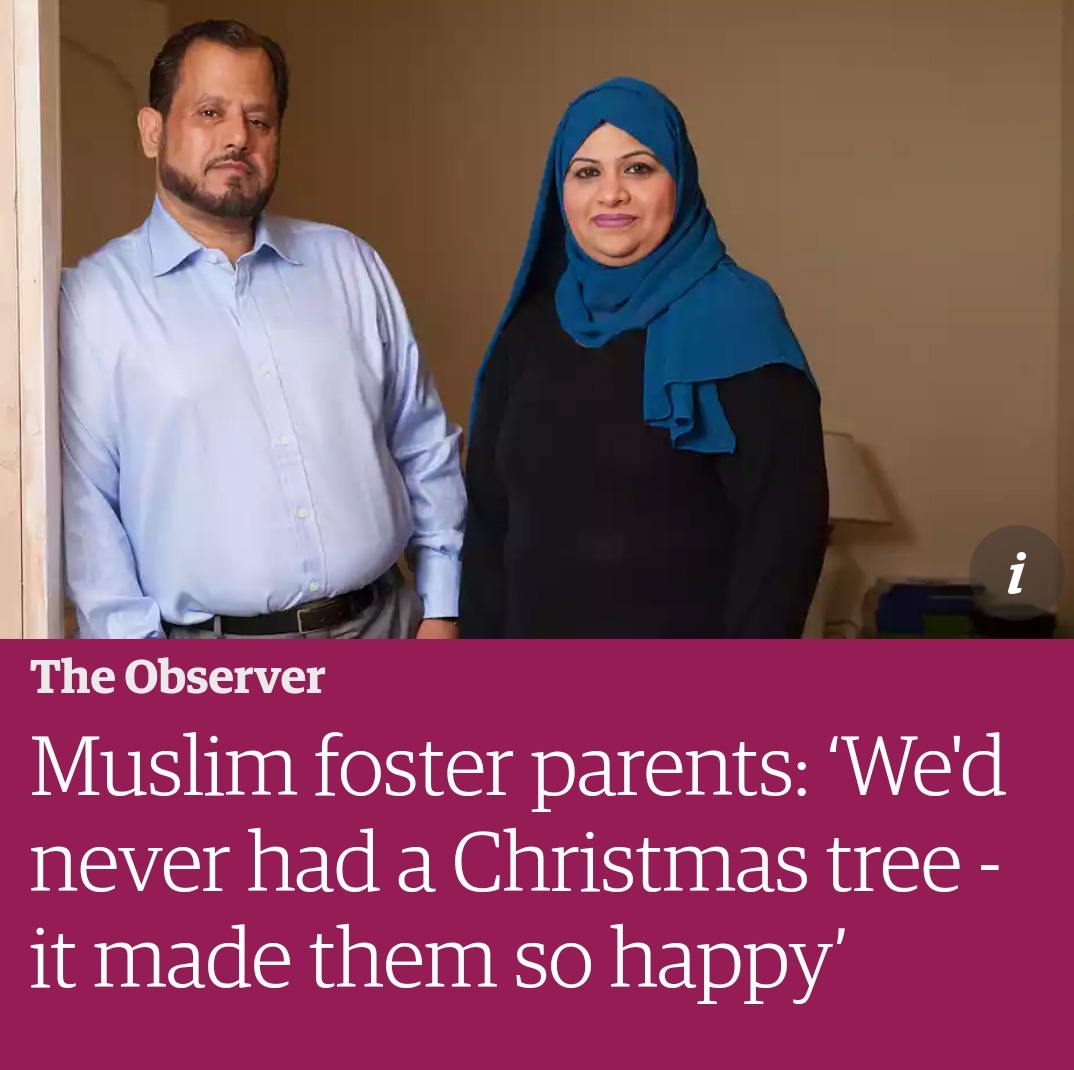philtippett:ithelpstodream:Once the children were asleep, Sajjad headed out on an urgent shopping mi
philtippett:ithelpstodream:Once the children were asleep, Sajjad headed out on an urgent shopping mission. “We are Muslims and we’d never had a Christmas tree in our home. But these children were Christian and we wanted them to feel connected to their culture.” The couple worked until the early hours putting the tree up and wrapping presents. The first thing the children saw the next morning was the tree.“I had never seen that kind of extra happiness and excitement on a child’s face.“ The children were meant to stay for two weeks – seven years later two of the three siblings are still living with them.https://www.theguardian.com/society/2017/dec/03/muslim-foster-parents-it-has-been-such-a-blessing?CMP=fb_guthis is a beautiful article and i just want to include a few other highlights from the above family as well as another profiled:…she focuses on the positives – in particular how fostering has given her and Sajjad an insight into a world that had been so unfamiliar. “We have learned so much about English culture and religion,” Sajjad says. Riffat would read Bible stories to the children at night and took the girls to church on Sundays. “When I read about Christianity, I don’t think there is much difference,” she says. “It all comes from God.”The girls, 15 and 12, have also introduced Riffat and Sajjad to the world of after-school ballet, theatre classes and going to pop concerts. “I wouldn’t see many Asian parents at those places,” she says. “But I now tell my extended family you should involve your children in these activities because it is good for their confidence.” Having the girls in her life has also made Riffat reflect on her own childhood. “I had never spent even an hour outside my home without my siblings or parents until my wedding day,” she says.Just as Riffat and Sajjad have learned about Christianity, the girls have come to look forward to Eid and the traditions of henna. “I’ve taught them how to make potato curry, pakoras and samosas,” Riffat says. “But their spice levels are not quite the same as ours yet.” The girls can also sing Bollywood songs and speak Urdu.“I now look forward to going home. I have two girls and my wife waiting,” says Sajjad. “It’s been such a blessing for me,” adds Riffat. “It fulfilled the maternal gap.”[…]Shareen’s longest foster placement arrived three years ago: a boy from Syria. “He was 14 and had hidden inside a lorry all the way from Syria,” she says. The boy was deeply traumatised. They had to communicate via Google Translate; Shareen later learned Arabic and he picked up English within six months. She read up on Syria and the political situation there to get an insight into the conditions he had left.“It took ages to gain his trust,” she says. “I got a picture dictionary that showed English and Arabic words and I remember one time when I pronounced an Arabic word wrong and he burst out laughing and told me I was saying it wrong – that was the breakthrough.”The boy would run home from school and whenever they went shopping in town, he kept asking Shareen when they were going back home. She found out why: “He told me that one day he left his house in Syria and when he had come back, there was no house.” Now he’s 18, speaks English fluently and is applying for apprenticeships. He could move out of Shareen’s home, but has decided to stay. “He is a very different person to the boy who first came here,” she says, “and my relationship with him is that of a mother to her son.” -- source link
Tumblr Blog : ithelpstodream.tumblr.com
